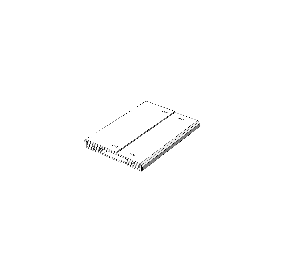Sustainability in SUTD
Sustainability by SUTD
Sustainable Exhibition Booths @ Open House
The SUTD Open House 2020 exhibition booth designed by Assistant Professor Peter Ortner (Architecture and Sustainable Design pillar) boasts sustainability and circularity in a number of ways.
Designing for circularity

- Made entirely out of recycled materials
- The design minimises waste from fabrication
- Assembles quickly without the use of any glue/fastener
- Stacks flat for space-efficient storage
- Can be recycled at its end-of-life
Visit Assistant Professor Peter Ortner’s profile

FarMe
Using technology to feed an ever-expanding population.
A start-up by SUTD researcher, Pranjal Verma, that’s primarily focused on creating an end-to-end system for large-scale growing operations, combining sensors and data analytics. A system that can improve the existing productivity of how a farm operates.
FarMe aims to optimise resource allocation (water, fertiliser, pesticide, etc.) for farms (both vertical and traditional farms), as well as optimise growth patterns. It utilises low cost hardware modules that sense and record agricultural data which is then analysed on the cloud. A neural network and a machine learning model optimises growth rate and generates new values for soil moisture, etc, that is then used to automate nutrient/water feeding as well as light exposure to the plants.
FarMe is currently working with Singapore’s largest mushroom and wheatgrass farm and will be deploying its sensors to their farm.
SGP Foods
Building Singapore’s Food and Climate Resilience
ESD Alumna Pek Yun Ning, who graduated from the SUTD Technology Entrepreneurship Programme (STEP) in 2019, is the founder of SGP Foods Pte Ltd. SGP Foods focuses on high-tech urban farming with an aim to help Singapore meet her climate change goals.
The company, incorporated in April 2020 , signed a Letter of Collaboration with Institute of Technical Education (ITE) on 5 Feb 2021 to transfer the knowledge for sustainable solutions and vertical agriculture to its students.
Currently on the team are also Benjamin Goh (EPD Class of 2019, STEP) and Brandon Chong (ISTD student).
Noshinom
Noshinom is a startup incubated at SUTD, focusing on upcycling fruits and vegetables into essences for supplementary consumption. Each day, the company generates many kilograms of fruit peels and vegetable cuttings during production. To address this, the founders collaborated with the Sustainability Office to set up two composting machines, converting the peels into fertilizers for the campus plants.
Seaforms
Seaforms believes that just as planting trees can mitigate deforestation, planting corals can help restore degraded marine ecosystems. The company excels in diverse projects that harmonize with the marine environment, from designing future ocean cities and reimagining aquaculture farms to conducting innovative research into mineral accretion technology as a potential building material for ocean infrastructure. Seaforms’ portfolio reflects a unified commitment to a resilient marine future. The Electric Reef Pillars initiative, which promotes coral growth through electrified reefs, showcases Seaforms’ dedication to merging technology with ecological stewardship. As a startup, Seaforms is actively engaged in groundbreaking research and initiatives, striving for a sustainable and interconnected relationship between humanity and the world’s oceans.
Tree Planting at SUTD, Thermal Comfort and Biodiversity Research
On 3 April 2024, 250 trees were planted across the Singapore University of Technology and Design (SUTD) in a joint effort by SUTD and volunteers from Mapletree Investments. Over 300 participants, including staff, students, family, and friends, took part in this event. This collaboration between SUTD and Mapletree was perfectly timed, aligning with SUTD’s Sustainability Plan to create a greener campus according to the SUTD Sustainability Plan. Meanwhile, Mapletree has been actively planting trees at institutes of higher learning as part of its efforts to address climate change.
With aligned goals, Mapletree generously donated $50,000 to cover the cost of the 250 saplings, marking the highest number of trees donated to any institute of higher learning in Singapore. The event was graced by Mr. Tan Kiat How, Senior Minister of State for the Ministry of Communications and Information and the Ministry of National Development, and Ms. Jessica Tan, Deputy Speaker of the Parliament of Singapore.
SUTD’s plan for a greener and cooler campus comes with various benefits. The trees will sequester more carbon and provide increased shade, enhancing thermal comfort and making outdoor spaces more pleasant. Additionally, the flowering and fruit-bearing trees will boost biodiversity by attracting bees, butterflies, and various bird species such as the buffy fish owl and the migratory common kingfisher.
To support these initiatives, SUTD has launched two multi-year, science-based research projects: one to measure thermal comfort through tree shade, and another to establish a biodiversity baseline for the campus, which will be monitored over the years to come. Moving forward, SUTD, in collaboration with researchers and other experts, will continue to assess and understand the levels of thermal comfort and biodiversity status, striving for a better and more sustainable campus.
